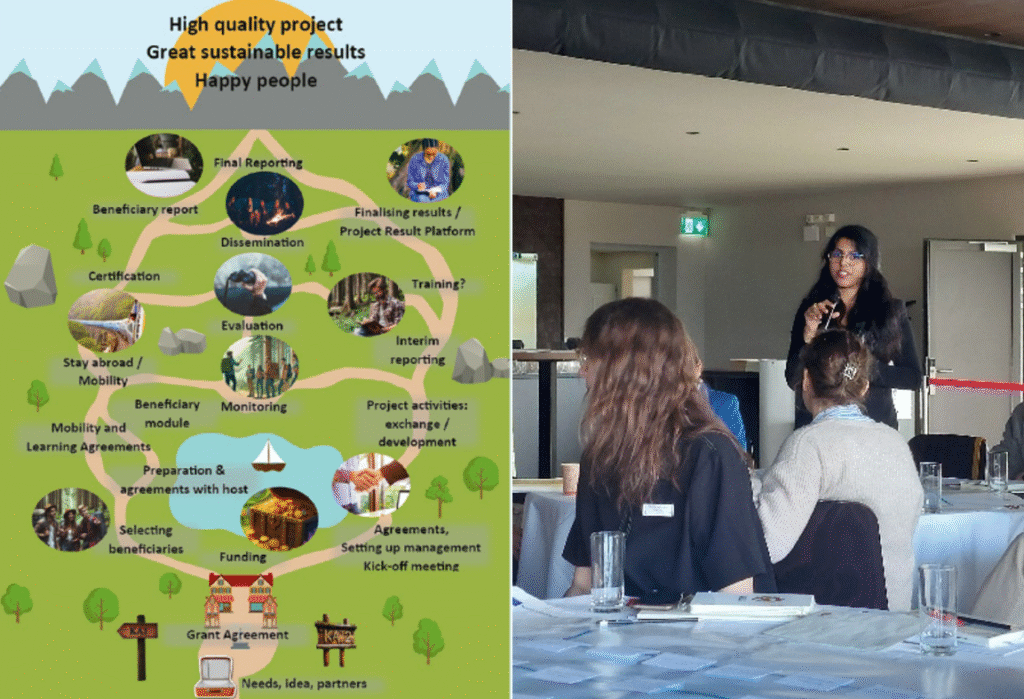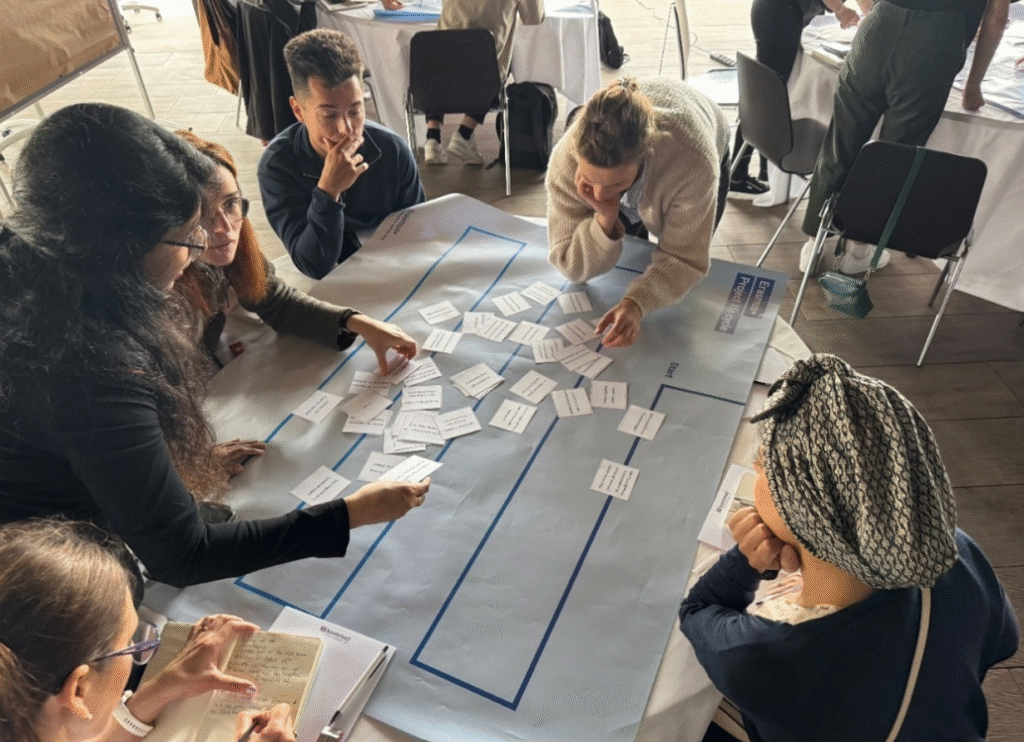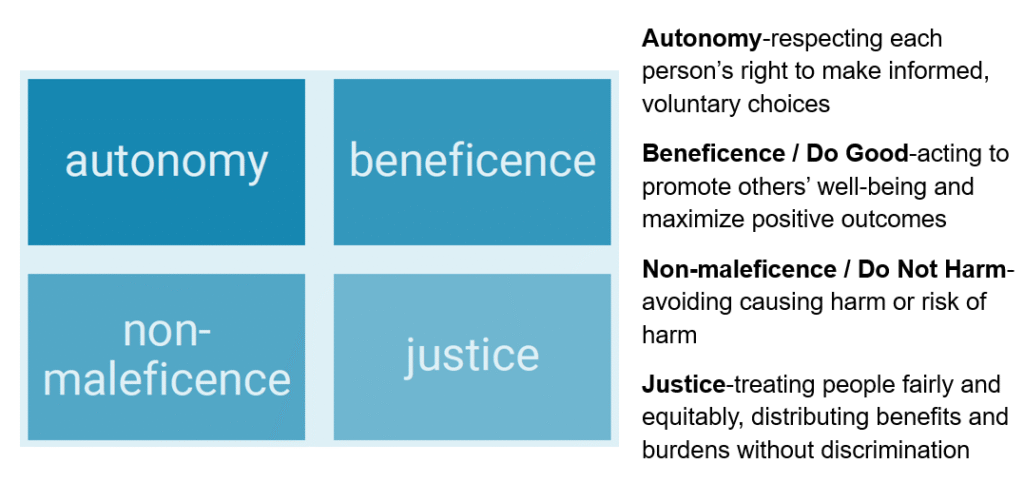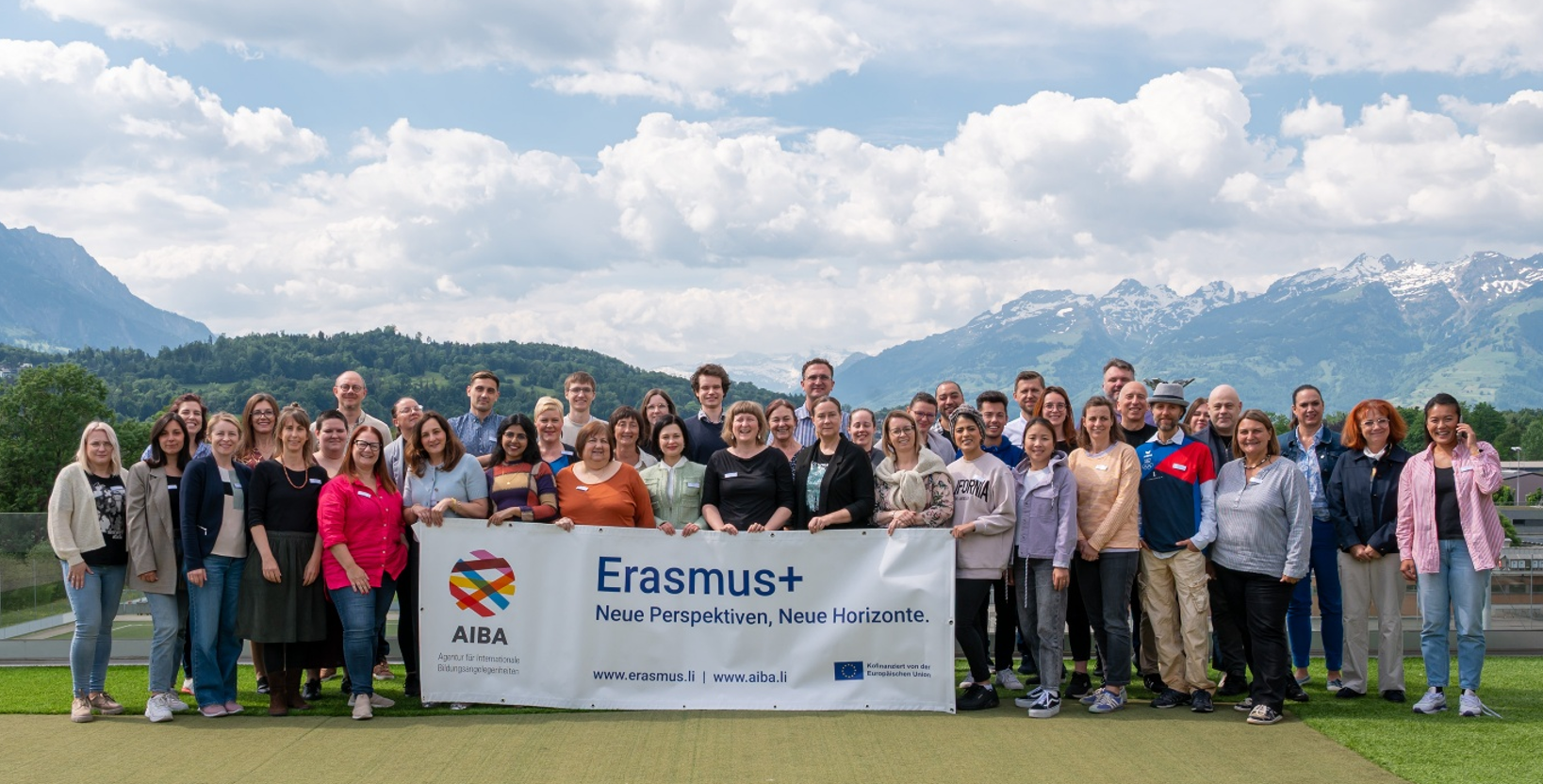Nestled between Switzerland and Austria, Liechtenstein is the 4th smallest countries in Europe and 6th smallest in the world—yet full of surprises starting from landscape, food, and hospitality. With just over 42,000 residents, zero airports, and zero highways, this alpine microstate is a powerhouse of innovation and environmental stewardship. The only university of Liechtenstein is located in capital Vaduz, yet Liechtenstein is a global leader in niche industries like precision manufacturing and sustainable finance.
And for four days in May 2025, Ruggell in Liechtenstein became the European hub for another kind of precision—Ecological and Sustainable Project Management (EcoSuPM) in Erasmus+. The seminar aimed to enhance the quality and sustainability of Erasmus+ project management across sectors (YOUTH, SCH, VET, ADU, HED). It was designed for both newcomers and experienced practitioners. This cross-sectoral Erasmus+ Transnational Cooperation Activity (TCA) did more than teaching, it challenged participants to reflect, collaborate, and innovate for a greener, fairer Europe.
Welcome to a Shared Vision
The seminar opened with a warm welcome by Dr. Stefan Sohler, Head of the NA AIBA Liechtenstein, setting the tone for collaboration across KA1 and KA2 projects. Participants were placed in maximally heterogeneous groups, fostering connections between newcomers and experienced project managers.
Foundations: Why Sustainability Matters
Day 2 kicked off with reflective warm-up questions: What does sustainability mean in your everyday life? This simple start snowballed into deeper discussions on embedding eco-conscious choices throughout the Erasmus+ project lifecycle—from planning to dissemination.
The group assignments were central to this process, focusing on key project management areas:
- Laying the Foundations
- Management Structures
- Quality Assurance and Impact Evaluation
- Communication and Collaboration
- Dissemination and Exploitation of Results


Each group crafted sustainable best practices, co-created a shared project management checklist, and contributed to a digital repository of tools and templates. These practical outcomes empower future project teams to act with clarity and conscience.
Tools and Roadmaps: From Theory to Action
Workshops led by experts like Viktor Mason and Sabine Roehrig-Mahhou highlighted critical tools for sustainable planning, risk assessment, dissemination strategies, and quality control. A “marketplace” activity allowed teams to exchange resources in real time. One powerful output was the creation of an Ultimate Sustainable Project Management System, a live document designed to evolve as Erasmus+ projects do.
| Laying the foundations | Management structures | QA & Impact | COM+Collaboration | Dissemination +Exploitation |
| Ethical considerations | Partnership Agreements (KA2) or Learning Agreements (KA1) | QA Plan with PM and WP indicators and timeline (QA = Quality Assurance; PM = Project Management; WP = Work Packages) | Steering Committee | Dissemination Plan |
| EU-Values and Erasmus+ priorities | Payment arrangements | Impact Evaluation Plan with Quantitative and Qualitative indicators and timeline | Operational Committees | Dissemination reporting tools |
| GDPR rules | Shared online folder | Detailed tools/methods as annexes of the plans | Meeting schedule | Dissemination templates and visual identity |
| review Needs analysis | Management Handbook | Shared online project folder | Project website and social media | |
| review Risk management plan | detailed Gantt chart to monitor progress | Communication channels | Stakeholder list | |
| review Gantt chart | Financial monitoring tools (budget summary files, timesheets….) | Collaboration tools | Info on partners’ and project website | |
| organise pre-kick-off online meeting | Conflict resolution systems | Exploitation plan with all partners’ input |
| LAYING THE FOUNDATIONS | |||||
| Project Management TOOL / ACTION | Suggested Eco-Sustainable Practices | Actions Planned in Our Project | Responsibility (Who?) | Timeline/Deadline | Template / File |
Ethics and Data Protection: Doing the Right Thing
Led by Michal Osmenda, Day 4 focused on ethics and GDPR. Through engaging examples, participants explored:
- The 04 ethical pillars of autonomy, beneficence, non-maleficence, and justice
- The intersection between ethics and data privacy
- Key roles of data subjects, controllers, and processors
This session emphasized the Charter of Fundamental Rights of the EU, grounding Erasmus+ projects not only in regulations but in values.

Participants left with clear checklists and templates to ensure data responsibility and ethical compliance throughout all phases of their Erasmus+ projects.
Beyond the content, EcoSuPM fostered a genuine sense of community. From dinner in Vaduz to casual evening walks, the event offered time to build networks that will outlive the four-day agenda.
Key Takeaways
Participants walked away with:
- A hands-on understanding of project cycles and Erasmus+ requirements
- Tools for eco-sustainable planning, GDPR compliance, and ethical decision-making
- A strengthened network for cross-sectoral collaboration
- A commitment to embedding European values in everyday project practices
The EcoSuPM seminar provided valuable insights into sustainable and ecological project management within the Erasmus+ framework. Participants left with enhanced skills, practical tools, and a deeper understanding of how to integrate sustainability and European values into their projects.
Resources and Legacy
All tools, templates, and the collaboratively built sustainable PM checklist are hosted online for ongoing use and adaptation:
EcoSuPM Toolbox & Collaborative Resources
- Main EcoSuPM Resources and Toolbox: All the documents are accessible for the staff of Karelia UAS through the internal data repository.
Sustainability Brainstorming Support
GDPR, Ethics, and Data Protection
- Ethics in EU Institutions
- Charter of Fundamental Rights of the EU (2000)
- Priorities of Erasmus+
- EU GDPR Overview (For Citizens and Organisations)
- EU Data Protection Framework Summary
Author:
Shammi Keya, Grant writer, Karelia UAS
Cover photo: All the 39 delegates from 15 different nationalities alongh with the trainers in EcoSuPM 2025. (Photo: NA AIBA Liechtenstein)

